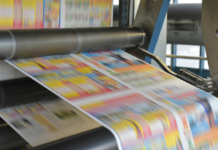ISLAMABAD: A serious institutional conflict is brewing over the control of vehicle safety and quality standards in Pakistan, following the introduction of the proposed Motor Vehicles Industry Development Act, 2025 by the Ministry of Industries. The Act, presented as a framework to regulate the country’s automotive sector, has controversially assigned the authority to determine and enforce vehicle standards to the Engineering Development Board (EDB), a move that has drawn strong criticism from regulatory insiders and legal experts.
Traditionally, the mandate to develop, notify, and enforce technical standards for all industrial and consumer products, including motor vehicles, lies with the Pakistan Standards and Quality Control Authority (PSQCA), an autonomous body under the Ministry of Science and Technology. PSQCA is the only legally recognized national standards body and possesses the statutory authority to conduct conformity assessments of vehicles, systems, and components.
However, under the new Act, the EDB, a non-regulatory entity operating under the Ministry of Industries and Production, has been assigned the power to fix minimum safety, quality, performance, and environmental standards for vehicles manufactured or imported into the country. Observers say this represents a fundamental overreach and directly undermines PSQCA’s legally mandated role.
While PSQCA has yet to fully establish the physical infrastructure, such as testing laboratories, required for comprehensive inspections of locally manufactured or assembled vehicles, it has recently taken critical institutional steps in that direction. These include the formal adoption of Type Approval procedures and signing mutual recognition agreements with internationally accredited standard bodies — aimed at ensuring that domestic vehicles meet globally accepted safety and performance benchmarks. The authority’s push toward aligning Pakistan’s vehicle standards with international norms is viewed as a step in the right direction, albeit still in its early stages.
In contrast, the EDB has no institutional background or technical infrastructure to perform standards enforcement functions. Its historic role has been limited to policy support and industrial promotion, not technical regulation or consumer protection. Critics warn that granting such regulatory powers to EDB not only violates established jurisdiction but also creates a potential conflict of interest, particularly given EDB’s long-standing alignment with the local auto manufacturing sector.
Industry insiders point out that the powerful automobile lobby has long preferred to work with the EDB due to its favorable stance. Despite persistent criticism over high prices, low localization, and substandard safety features in vehicles produced by local assemblers, the EDB has been accused of shielding the industry from both scrutiny and accountability. By shifting standard-setting authority to the EDB, the proposed Act risks further weakening consumer safeguards.
Sources within the Ministry of Science and Technology confirmed that the Ministry and PSQCA are preparing to formally oppose the relevant sections of the draft law. “The mandate for standardization, inspections, and conformity assessments is clearly assigned to PSQCA under the law,” said an official. “Any attempt to bypass or duplicate that role without proper restructuring is not just administratively flawed but also legally unsound.”
Legal experts echo these concerns, warning that authorizing EDB to define and enforce safety standards while PSQCA retains its legal jurisdiction would result in regulatory overlap, institutional confusion, and possible legal challenges. It also raises the risk that imported or domestically produced vehicles may enter the market without proper independent scrutiny.
While the Motor Vehicles Industry Development Act, 2025, is ostensibly a move toward greater regulation and modernization of the sector, its current structure may undermine these objectives by fragmenting responsibilities and weakening independent oversight. Unless the draft is amended to clearly define roles and retain PSQCA’s primacy in standard-setting the new law could ultimately serve the interests of manufacturers at the cost of public safety and market integrity.
As the legislation proceeds toward parliamentary consideration, this institutional tug-of-war is expected to intensify, with lasting implications for regulatory governance and consumer protection in Pakistan’s automobile industry.
Pakistan is a signatory to the WTO Technical Barriers to Trade (TBT) Agreement, which discourages overlapping mandates within member countries for the development and enforcement of standards. Furthermore, international standardization bodies such as the International Organization for Standardization (ISO) recognize only one standards body per country, a position that reinforces PSQCA’s exclusive status under international practice.
In addition, if the Act is passed in its current form, it could not only create ambiguity in regulatory roles but also narrow the scope of the EDB itself effectively reducing its broad mandate across all engineering sectors to a limited focus on the automobile industry, contrary to its original institutional purpose.
























